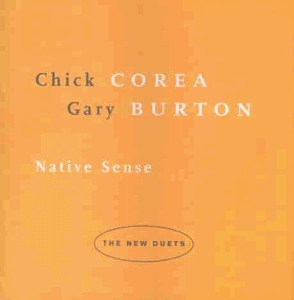
| Artist: | Chick Corea |
| Title: | Native sense |
| Released: | 1997 |
| Label: | Stretch Records |
| Time: | 64:50 |
| Producer(s): | Chick Corea |
| Appears with: | |
| Category: | Jazz |
| Rating: | *******... (7/10) |
| Media type: | CD |
| Purchase date: | 1998 |
| Price in €: | 14,99 |
| Web address: | www.chickcorea.com |